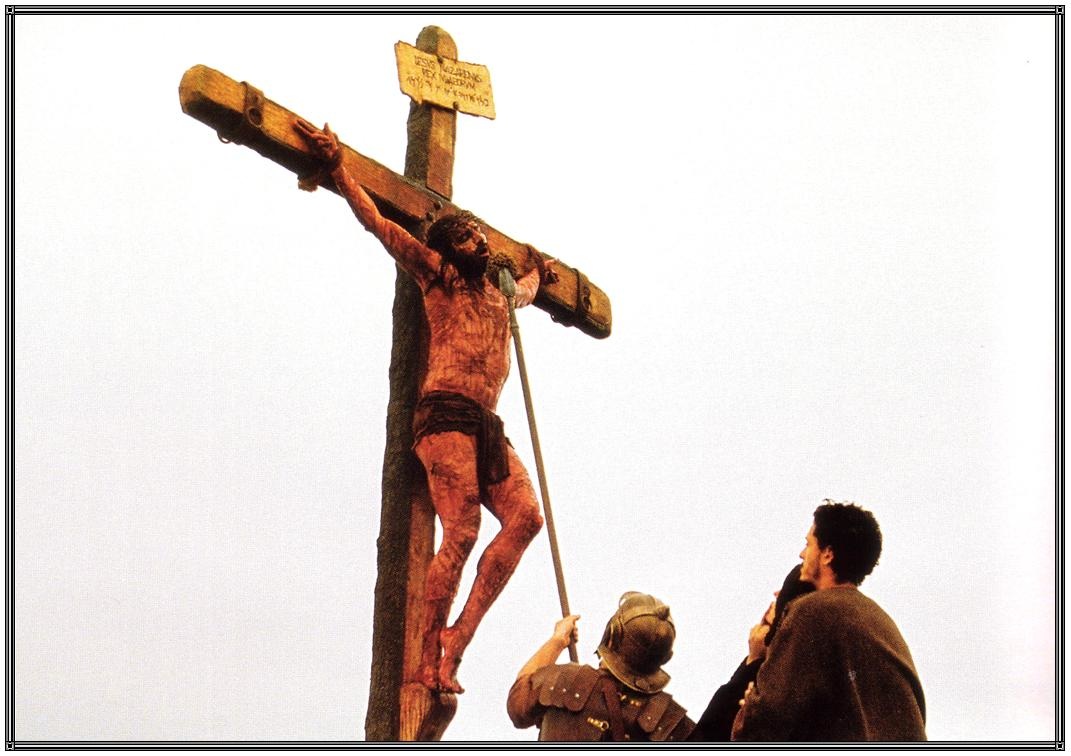Mat 27:45 Now from noon until three o'clock in the afternoon there was darkness over the whole land;
Mat 27:46 but about three o'clock Jesus cried out in a loud voice, "ELI, ELI, LAMA SABACHTHANI?" that is to say, "MY GOD, MY GOD, WHY HAST THOU FORSAKEN ME?"
Mat 27:47 "The man is calling for Elijah," said some of the bystanders.
Mat 27:48 One of them ran forthwith, and filling a sponge with sour wine put it on the end of a cane and offered it Him to drink;
Mat 27:49 while the rest said, "Let us see whether Elijah is coming to deliver him."
Mat 27:50 But Jesus uttered another loud cry and then yielded up His spirit.
Introduction
Jesus had been crucified soon after 9 am, now as He hang there in agony on that cruel Roman gibbet suddenly there was darkness over the whole land. The crowd, the Religious and the Thieves had insulted and taunted Him. Now God expresses his sentiments concerning the whole sordid affair. There was darkness, an earthquake and tombs breaking open. In the Midst of all this Jesus cried out His deep distress. It was about 3 pm the time of the evening sacrifice when He finally died
Mat 27:45 Now from noon until three o'clock in the afternoon there was darkness over the whole land;
Notes
Was this an eclipse? This seems unlikely as Passover was a full moon. Also a normal eclipse was usually much shorter than three hours. This was a supernatural event which originated in heaven.
Mat 27:46 but about three o'clock Jesus cried out in a loud voice, "ELI, ELI, LAMA SABACHTHANI?" that is to say, "MY GOD, MY GOD, WHY HAST THOU FORSAKEN ME?"
Notes
Why hast thou forsaken me? These words can only express the idea that he was treading the wine-press alone. As he hung on the cross, "made sin for us," he was left to struggle without a sense of his Father's presence. Still, the cry, My God, my God! shows that he still clung to the Father as his own.PNT
Mat 27:47 "The man is calling for Elijah," said some of the bystanders.
Notes
This man is calling for Elias - This was done purposely to deride him and his pretensions to be the Messiah. The words “Eli, Eli,” they might easily pretend that they understood to mean Elias, or so pervert them. The taunt would be more cutting, because it was the universal belief of the Jews, as well as the doctrine of Christ, that “Elias” would come before the Messiah. They derided him now, as calling upon “Elias” when God would not help him; still keeping up the pretensions to being the Messiah, and invoking “Elijah” to come from the dead to aid him. Or it is possible that this might have been said by some bystanders who did not understand the language in which he spoke, or who might not have been near enough to hear him distinctly.
Barnes
Mat 27:48 One of them ran forthwith, and filling a sponge with sour wine put it on the end of a cane and offered it Him to drink;
Notes
One of them ran forthwith, and filling a sponge with sour wine
Took a sponge - This being the most convenient way to reach a liquid to his mouth; tied it on a reed, that they might be able to reach his lips with it. This reed, as we learn from St. John, was a stalk of hyssop, which, in that country, must have grown to a considerable magnitude. This appears also to have been done in mercy, to alleviate his sufferings. See Mat_27:34. A.C.
Mat 27:49 while the rest said, "Let us see whether Elijah is coming to deliver him."
Mat 27:50 But Jesus uttered another loud cry and then yielded up His spirit.
 |
| Jesus Yielded up His Spirit and died. |
Notes
(50) When he had cried again with a loud voice.—It is well that we should remember what the words were which immediately preceded the last death cry; the “It is finished” of John 19:30, the “Father, into Thy hands I commend My spirit” ofLuke 23:46, expressing as they did, the fulness of peace and trust, the sense of a completed work.
It was seldom that crucifixion, as a punishment, ended so rapidly as it did here, and those who have discussed, what is hardly perhaps a fit subject for discussion, the physical causes of our Lord’s death, have ascribed it accordingly, especially in connection with the fact recorded in John 19:34, and with the “loud cry,” indicating the pangs of an intolerable anguish, to a rupture of the vessels of the heart. Simple exhaustion as the consequence of the long vigil, the agony in the garden, the mocking and the scourging, would be, perhaps, almost as natural an explanation.
Yielded up the ghost.—Better, yielded up His spirit. All four Evangelists agree in using this or some like expression, instead of the simpler form, “He died.” It is as though they dwelt on the act as, in some sense, voluntary, and connected it with the words in which He had commended His spirit to the Father (Luke 23:46).



No comments:
Post a Comment